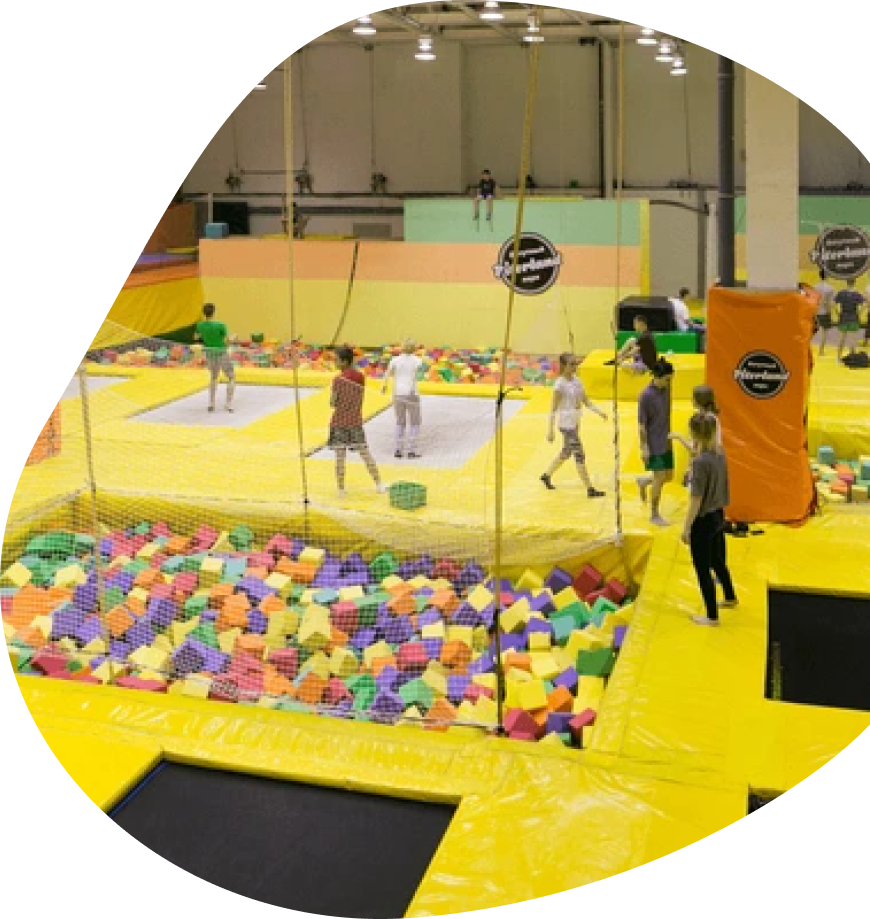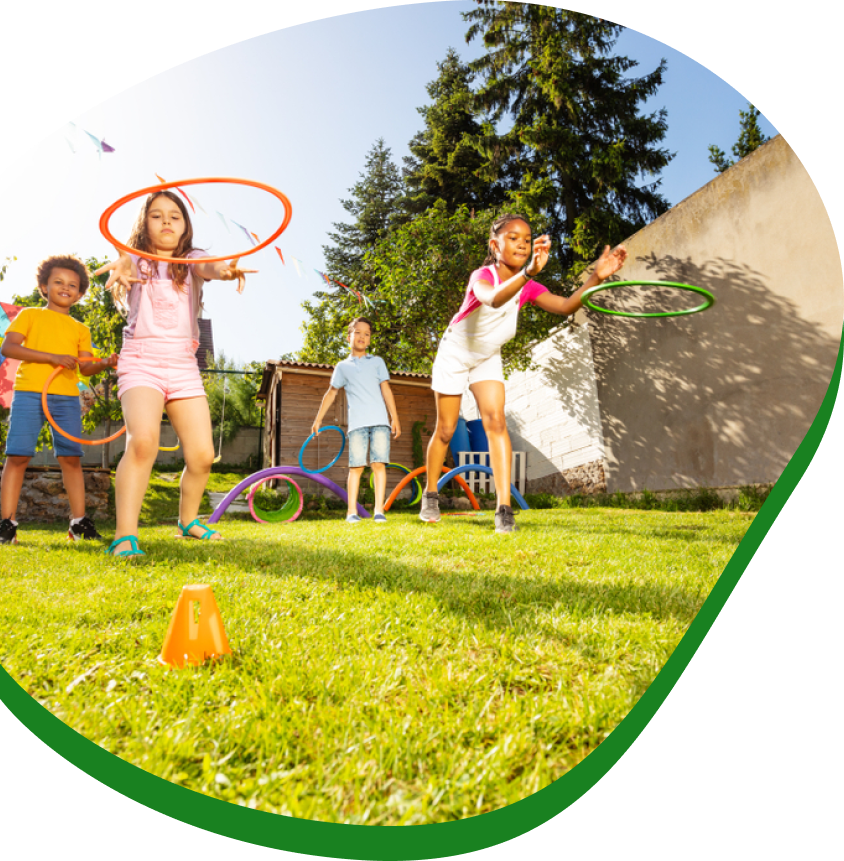Programs / Sensory gym
Sensory Gym
If you have a child experiencing emotional and behavioural issues they may require support in regulating their emotions of low feelings and anxiety and to experience relief from symptoms associated with possible learning difficulties, trauma from abuse or neglect, disability or disorders such as Autism Spectrum Disorder, Attention Deficit Hyperactivity Disorder, Oppositional Defiant Disorder, and Sensory Processing Disorder. Empowering your child with strategies to self-regulate through connection with their inner world and their body develops confidence and self-worth, which they desire. As parents or carers you may be seeking assistance in supporting your children to feel good about themselves and equipped to self-manage their emotions to feel confident and capable with how they communicate and socialize within their community.




child support
The child is supported by a coach and the parent or carer whilst being exposed to sensory experiences in the gym to identify sensory preferences, sensitivities and strategies to self-regulate their nervous system into alignment with their environment and the situation. The child learns how to identify what their body is feeling and whether they need to calm their nervous system, elevate the level their body is operating at to meet the demands of the situation, or maintain the current level of drive, energy, enthusiasm, focus and functionality. The second part of the process of self-regulating is providing their body with appropriate sensory experiences to modify their nervous system by increasing, decreasing or maintaining their level of alertness as required. This entire process is known as providing a sensory diet for self-regulation. Regulating the emotions through sensory experiences is an effective strategy in supporting our children and ourselves to manage challenging behaviours by diffusing the strong emotions that lead to emotional outbursts of anger, aggression, frustration, anxiety, uncertainty and irritation that occur as reactive measures in situations and environments that may feel unsafe, unpredictable, out of our control and emotion driven.
Our sensory equipment
The sensory gym is equipped with various types of Our sensory equipment that the child or young person experiences during the course of their session to create an individualized sensory integration program to recognize and manage sensory triggers and sensitivities, whilst identifying those sensory experiences that restore them to the optimal level of alertness for their situation. The program is child-driven in a safe, supportive environment overseen by the coach and involving the parent or carer in meaningful, fun interactions and play. Teaching occurs through planned and incidental learning opportunities and in supported discussions with the child, parent and coach in a child-led approach. Parents will be coached in the principles of self-regulation through sensory experiences and guided to understanding the customized program for their child to provide informed care and support which they are encouraged and supported to sustain in the home, school and community.

Our approach
Our approach at Sensory Tuning is sensory based to help children adopt emotional regulation as both a preventive measure against emotionally reactive behaviours, and strategies to self-regulate their arousal level when feeling anxious and heightened or when feeling low in feelings and energy.

Our participants
Our participants in the Sensory Gym program are children and young people aged 2-14 years experiencing emotional and behavioural issues and their parents or carers who are seeking self-help strategies for their child in managing their symptoms and optimising their enjoyment and fulfillment in life, to function at their full potential.

sensory gym term
Children’s sensory sensitivities and preferences are assessed at the commencement of the sensory gym term. A follow-up progress assessment is conducted at the conclusion of the 10-week term. A report is provided for the parent after each assessment.
recruitment process
As part of the recruitment process, parents complete a checklist and follow up interview providing details of the child’s observed sensory likes and dislikes, emotional and behavioural challenges, and strategies for emotional regulation that have been demonstrated to be successful or unsuccessful in the past. Children and young people old enough to be involved in a relaxed conversation with the coach in the parent’s company regarding their sensory experiences and emotional challenges and are interested in participating in such a conversation are welcome to likewise be involved to provide further insight prior to commencing the sensory gym program.
To support the child and parent
To support the child and parent or carer at home, instructional handouts, activity sheets and sensory diet ideas are available at the end of each gym session and online in the members area. There is a Kids Play area available in this password protected members area.
parental involvement
Whilst desirable for the creating of a supportive, playful environment between the parent and child with continuity of implementation in the home and school environment, parental or carer involvement in the sensory gym is strongly encouraged but is not mandatory. Adult support of the child by a parent or carer is however essential at each gym session. Please discuss any concerns or reservations with the coach at the time of enquiry to establish the best approach for you and your child. Young people aged approximately 12-14 years may opt to work independently with the coach in the sensory gym. At all times we encourage a safe, child-led approach
For further information, please Contact Us




Additional Resources Available through Registration in the Program
To facilitate ease of support for the family, a password protected membership page is available to the parents and carers on the Sensory Tuning website. Within this area are the administrative forms required for registration with the program and for providing relevant sensory, emotional and behavioural information observed by the parent or carer that may provide important insight into the child. Handouts and information sheets distributed during the sensory gym sessions are available for download. Parents and carers are able to contact the coach for ongoing support through this secure site and additional support is available through the parent forum located there. To encourage independence, responsibility and self-driven growth and behavioural change, a Kids Section is available on the website. It also contains the gym worksheets, suggestions for sensory play and ideas for emotional regulation. Young people aged 12-14 years have access to a forum of their peers also involved in the program to connect with and discuss issues that have arisen for them through participation in the program, to share sensory ideas they have found successful, and to seek or offer support when facing challenges in implementing sensory regulation in their daily lives whether that be at home, sport, music, school or whilst active in the community in any capacity.

sensory gym component
Whilst the sensory gym component of the program operates in correspondence with the public school terms, parental support through the website continues throughout the year for the duration of the child’s registration in the sensory gym program. Access to the membership page and parent forum is available on an ongoing basis for a minimal fee once registration in the program ceases.
no limitation
There is no limitation on the length of participation in the program. Registration is required prior to the commencement of each term’s program. Each child is welcome to maintain participation in the program whilst the program continues to engage the child and their parent or carer in a fun, rewarding process that continues to provide insights, learning and behaviour change in terms of emotional regulation for the child. The child is encouraged to take a break from the sensory gym for a term if their motivation and enjoyment in the program begins to lag yet further growth is deemed possible after a rest for renewed enthusiasm in the program. Children and young people will not use self-regulation strategies or participate in the program with success if it isn’t fun. Whilst programs run for a 10 week term, late registrations will be accepted up to and including week 4. Registration costs are amended to reflect the number of weeks’ participation in the program, at a minimally higher rate.
mid-term adult attachment
Parents participate in a mid-term adult attachment interview with a psychologist as part of the sensory gym program. The parents will be trained on attachment and the combined observed and parental indicated identification of sensory based and attachment based behaviours. For example, the child may be emotionally and physically clingy whilst the parent is both sensory and emotionally avoidant impacting the successful interaction and cohesion of their relationship. The parent will learn strategies to support the child given these perhaps opposing behaviours. A subsequent session will be available at the end of each term by a psychologist thereafter
parent carer support
Be available at the end of each term by a psychologist thereafter.The parent and carer are supported in establishing sensory regulation in their lives to act as a role model for their child through a weekly zoom call and coaching videos accessed through the members site. At the conclusion of each term the coach conducts a sensory assessment of the child in relation to their treatment plan as additional feedback for the parent in regards to the child’s sensory profile and self-regulation.
Opportunities
Opportunities for feedback to the coach on the child’s progress with self-regulation to reduce challenging behaviours is available during each weekly zoom call or via the members site. The coach will provide ongoing support to assist the parent or carer with positive parenting of the child re sensory processing issues, emotional/ behavioural/social issues, and generalized parenting issues. The parent forum is an additional avenue for support in trouble-shooting challenging behaviour issues.